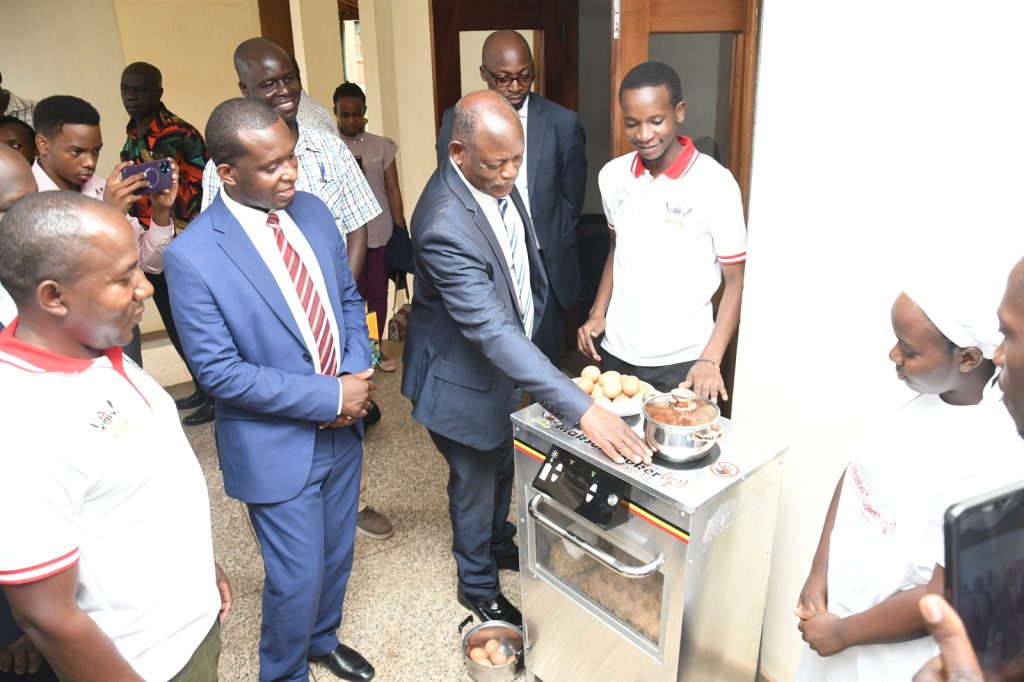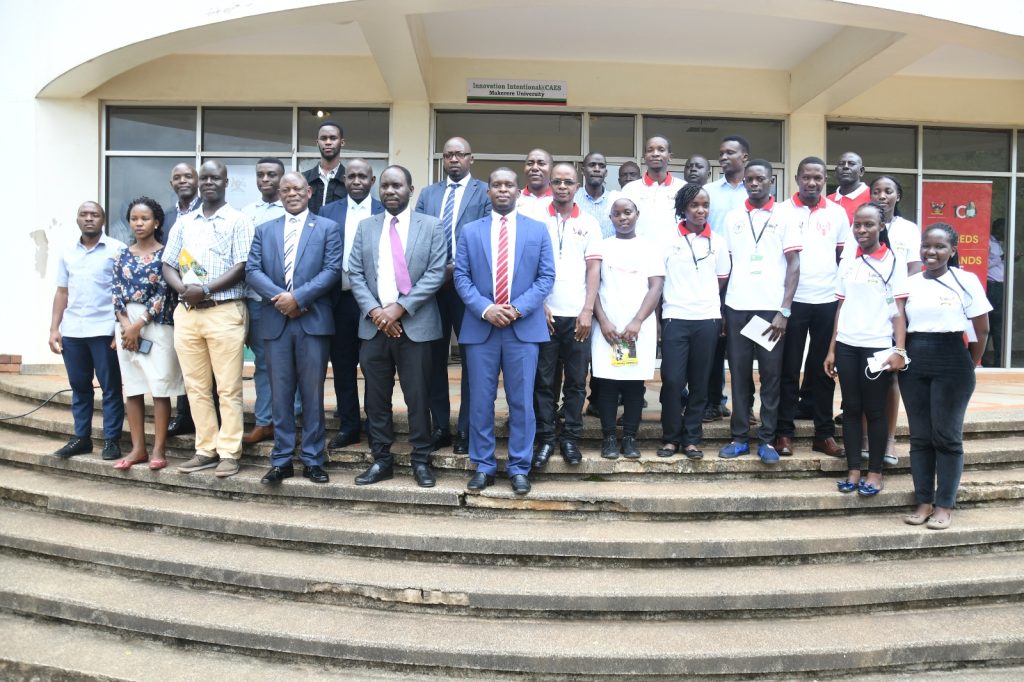Makerere Launches Solar-powered Cooker

Dr. Cosmas Mwikirize (R) officially launching the MakSol Cooker on behalf of the Minister of Science, Technology and Innovation, Hon. Dr. Monica Musenero Masanza on 14th June 2023 at Makerere University.
Makerere University has launched a Solar-powered Cooker developed by researchers from the Department of Agricultural and Bio-systems Engineering at the College of Agricultural and Environmental Sciences (CAES) in collaboration with Intellsys (U) Ltd. the MakSol Cooker was officially unveiled and launched on 14th June 2023 by the Minister of Science, Technology, and Innovation, Hon. Dr. Monica Musenero Masanza, represented by Dr. Cosmas Mwikirize, Superintendent-Industry Value Chains Development at the Science, Technology and Innovation Secretariat (STI)-Office of the President.
Development of the MakSol Cooker
The cooker is an output of a research project titled, “Development, Production Scale-up and Commercialization of an Electric Solar Cooker (MakSol Cooker) to reduce the Cooking Carbon Foot-Print in Households”. The project was supported by the Government of Uganda through the Makerere University Research and Innovations Fund (Mak-RIF) and the Science, Technology and Innovation Secretariat-Office of the President. The project was led by Dr. Peter Tumutegyereize, a Lecturer in the Department of Agricultural and Bio-systems Engineering at Makerere University. Other project members included, Mrs. Ayaa Filadh Wondomal, Mr. Paul Soddo, Mr. Kenneth Junko, Ms. Zebia Catherine Nankya, and Ms. Cholet Nyangoma.
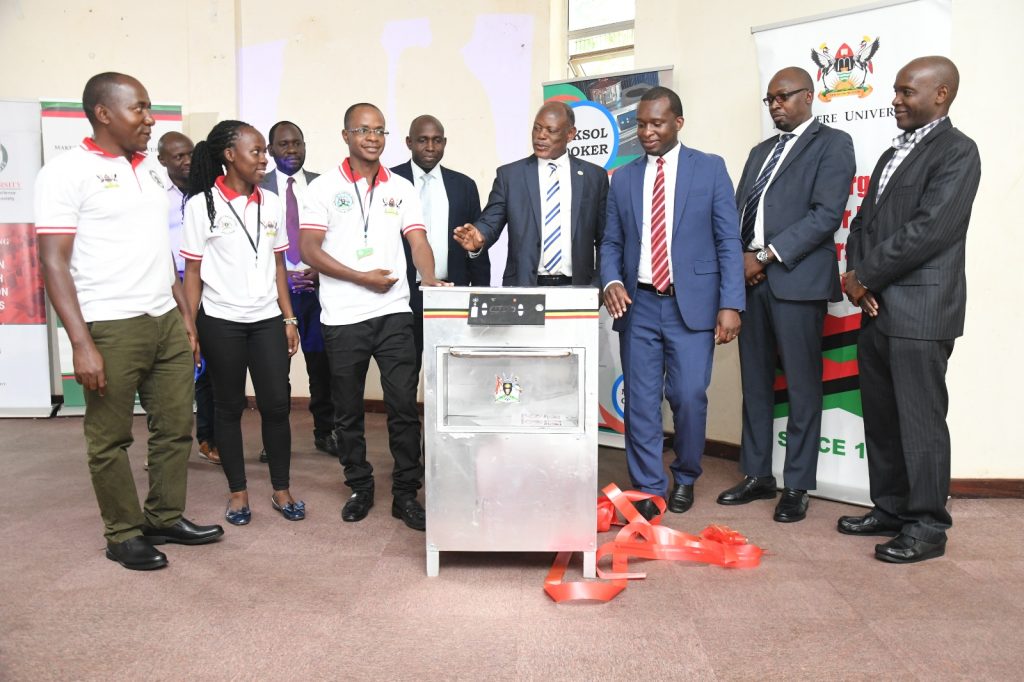
What the innovation seeks to address
According to the World Health Organization (WHO) report on the use of clean and polluting fuels for cooking published in 2022, one third of the global population or 2.4 billion people worldwide still remain without access to clean cooking fuel. The use of inefficient, polluting fuels and technologies is a health risk and a major contributor to diseases and deaths, particularly for women and children in low-and-middle-income countries. It makes cooking with polluting fuels one of the largest environmental contributors to ill health. Breathing the smoke produced from cooking with polluting fuels can lead to heart diseases, stroke, cancers, chronic lung diseases and pneumonia. Millions of people continue to die prematurely every year from household air pollution, which is produced by cooking with inefficient stoves and devices paired with wood, coal, charcoal, dung, crop waste and kerosene. Without rapid action to scale up clean cooking, the world will fall short of its goal to achieve universal access to clean cooking by 2030. In Uganda, 95% of households rely on charcoal, wood, or other forms of biomass for their household cooking needs while 5% rely on alternatives like electricity or gas (UBOS, 2017).
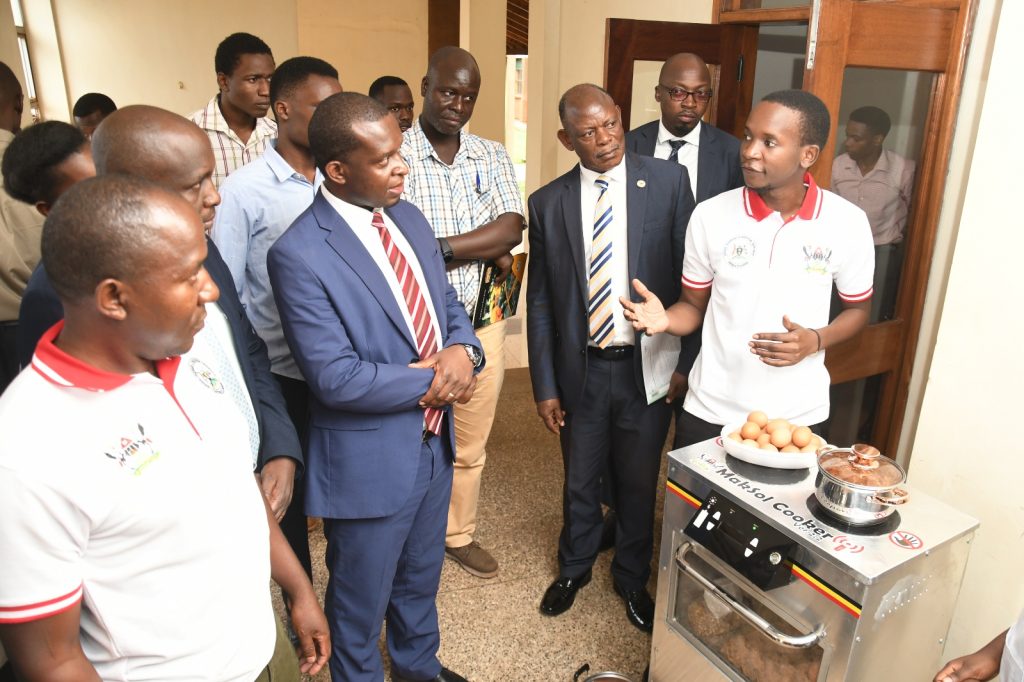
A survey conducted by the research team indicates that health and financial implications of cooking on charcoal and/or firewood have pushed citizens to work harder to shift towards presumably less toxic and presumably less costly cooking fuels like liquefied petroleum gas (LPG). This indeed saves the daily purchases often associated with charcoal, but is however an expensive system to upgrade to and presents its own very lethal hazards in cases of accidents. Cooking with electricity exerts the least pollution to both mankind and the environment especially when the electricity is generated from clean renewable energy resources. However, since almost, 80% of Uganda’s households lack access to electricity, conventional electric cooking technologies have not had and will not have a countrywide adoption by 2040.
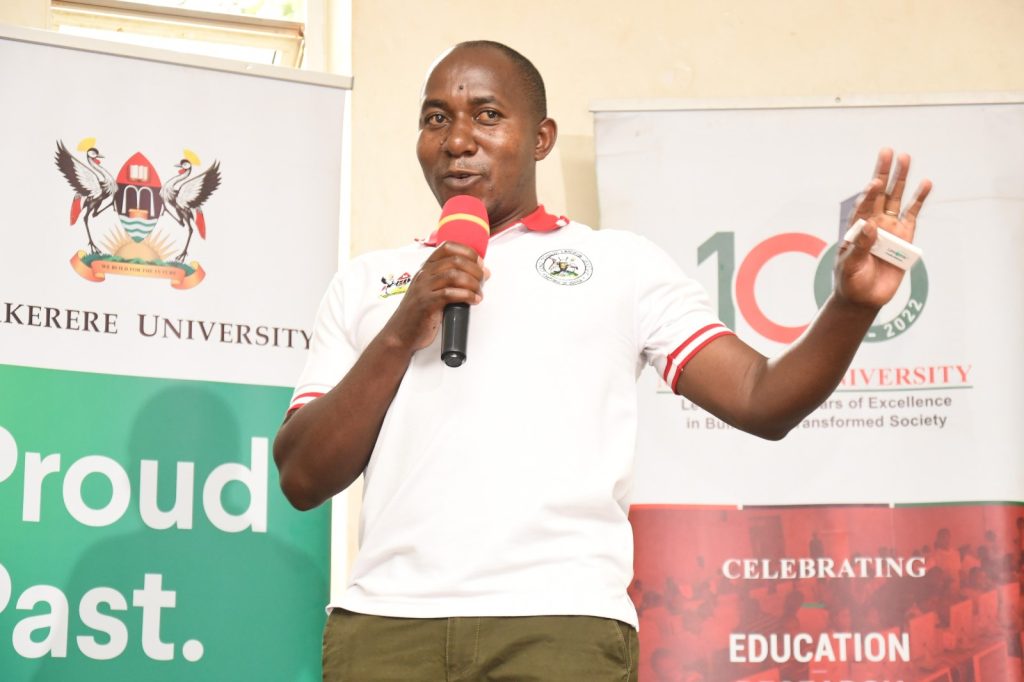
The newly developed MakSol Cooker will greatly increase access to modern zero-emission cooking for off-grid communities. With a battery life of 5 years and 20 years for the solar panels, the cooker comes with seven unique benefits; zero emissions, zero recurring cooking costs, clean cooking, minimal fire outbreak, easy to clean, minimal heat loss to the surrounding and a cool kitchen. MakSol Cooker is powered by direct current from a battery charged by solar modules and currently costs UGX4,300,000.
Remarks by the Minister
In her speech delivered by Dr. Cosmas Mwikirize, Superintendent-Industry Value Chains Development, Science, Technology and Innovation Secretariat – Office of the President, the Minister of Science, Technology, and Innovation, Hon. Dr Monica Musenero Masanza congratulated the research team upon the milestone. “The solar cooker represents a breakthrough in clean cooking technology, harnessing the abundant sunlight in our region to provide a sustainable, efficient, and cost-effective alternative to traditional cooking methods. It eliminates the need for wood charcoal, thereby drastically reducing the harmful emissions of particulate matter and promoting a cleaner environment for all,” she noted. She said the cooker was not merely a technological innovation, but a symbol of progress, resilience, and sustainability, embodying the power of science, technology, and innovation in transforming society for the better. “It is a product of tireless research, collaboration, and the unwavering commitment of the talented minds and experts who have worked relentlessly to bring this innovation to life.”
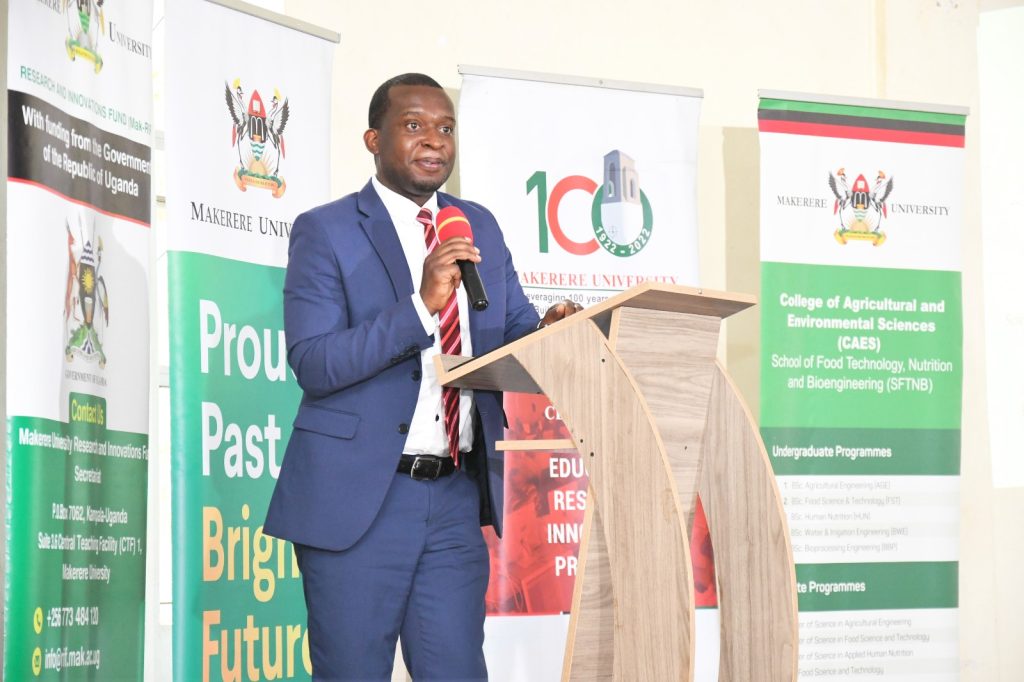
The Minister called on the public to embrace the technology in a bid to create positive impact on public health, and mitigate the environmental consequences of traditional cooking practices. “The solar cooker will not only improve air quality but also alleviate the burden of deforestation and reduce the reliance on unsustainable energy sources. I would like to express my deepest gratitude to all the researchers, scientists, and innovators who have made this remarkable achievement possible. Their dedication, passion, and ingenuity have paved the way for a brighter and more sustainable future for our nation.”
Remarks by the Vice Chancellor
The Vice Chancellor of Makerere University, Prof. Barnabas Nawangwe equally commended the research team, noting that the innovation would largely tame environmental degradation arising from the increasing population and the search for cheaper sources of energy. Uganda’s population currently stands at 48 million and is expected to increase to 60 million by 2030, and 104 million by 2060. The Vice Chancellor tasked the innovators to come up with different models of the MakSol Cooker to make it affordable for an average Ugandan.
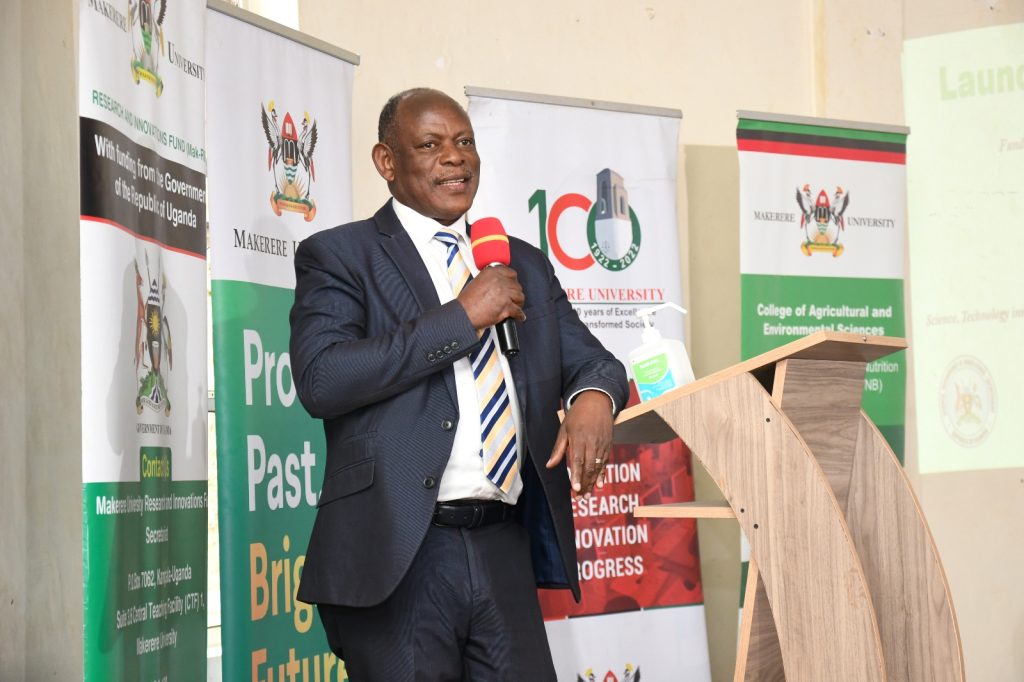
Prof. Nawangwe was specifically impressed by the multidisciplinary nature of the research team and involvement of students in the project. “It is important that we continuously engage students in these projects because they are the future of this country and will remain innovative for a long time.” Emphasizing the role of Makerere in Uganda’s development, the Vice Chancellor appealed to the Government to reverse the decision to reduce funding towards research and innovation in the next financial year. “The future of our country lies in research and innovation. Many development ideas will be crippled if funding is reduced. It should instead be doubled to increase the number of innovations.” The Vice Chancellor urged the research team to patent their product. He pledged more support towards the project, saying the University had put in place a Fund under the Research and Innovations Hub to scale up such innovations. He expressed gratitude to the Government of Uganda for the unwavering support towards research and innovation at Makerere. Through MakRIF, the Government of Uganda has so far extended support to 750 research projects at Makerere University worth UGX90 billion. Similarly, the Vice Chancellor appreciated the Minister of Science, Technology, and Innovation, Hon. Dr. Monica Musenero Masanza for her commitment and support towards research and innovation at the University.
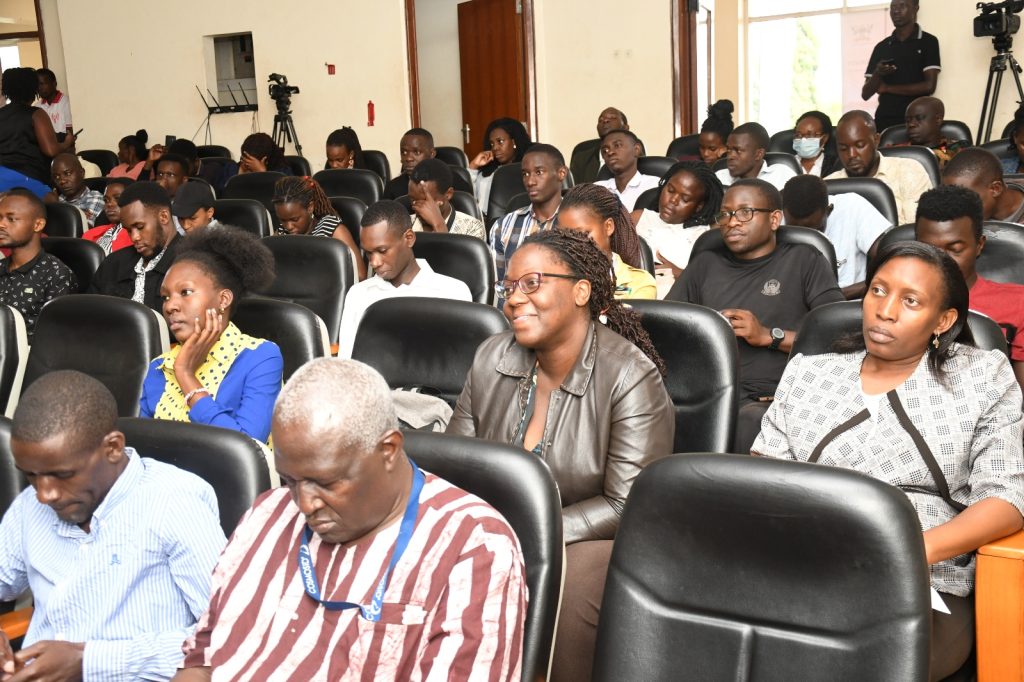
In his remarks, the Commissioner for Renewable Energy at the Ministry of Energy and Mineral Development, Dr. Brian Isabirye applauded Makerere for always being at the top in research and innovation, and pledged to solicit for funding to scale up innovations at the University.
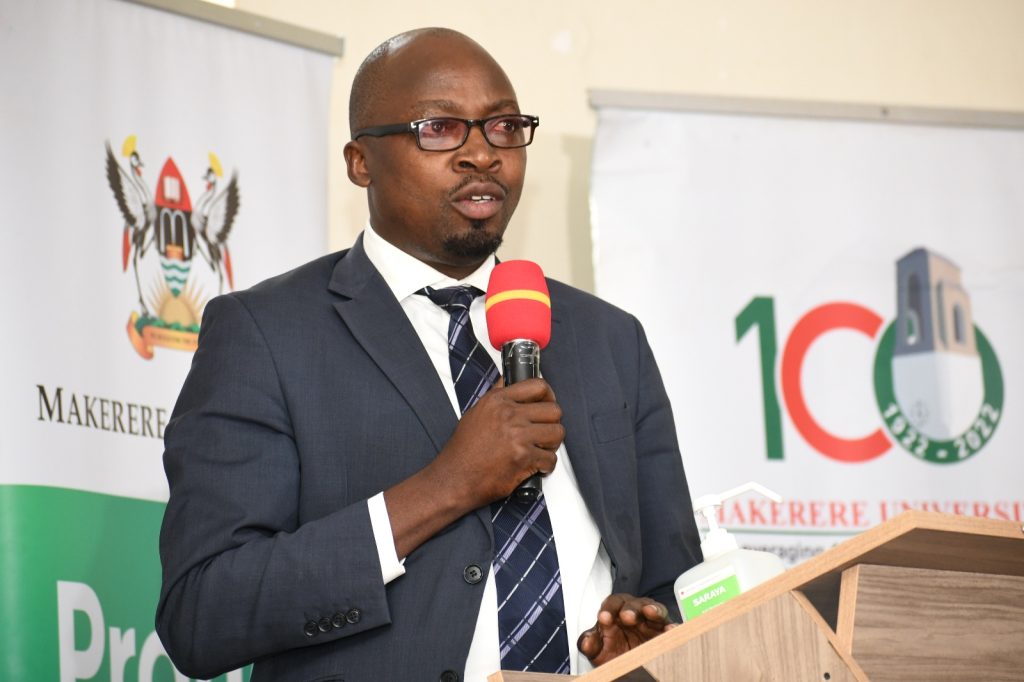
On behalf of the Principal of CAES, Dr. John Baptist Tumuhairwe, Dean, School of Agricultural Sciences appreciated Makerere University Management for creating a conducive environment for research and innovation. He applauded the research team for the innovation, and thanked the Government of Uganda for its commitment towards improving research and innovation at the University. The representative of MakRIF, Dr. Michael Owor, Dean, School of Physical Sciences at the College of Natural Sciences (CoNAS), Makerere University congratulated the research team and pledged more support towards the initiative.
